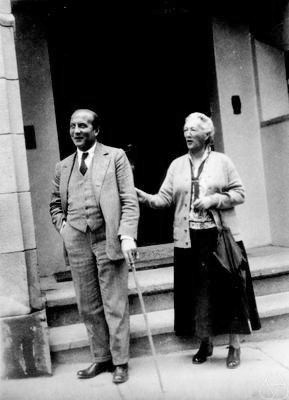|
David Hilbert
David Hilbert (; ; 23 January 1862 – 14 February 1943) was a German mathematician and philosopher of mathematics and one of the most influential mathematicians of his time. Hilbert discovered and developed a broad range of fundamental ideas including invariant theory, the calculus of variations, commutative algebra, algebraic number theory, the foundations of geometry, spectral theory of operators and its application to integral equations, mathematical physics, and the foundations of mathematics (particularly proof theory). He adopted and defended Georg Cantor's set theory and transfinite numbers. In 1900, he presented a collection of problems that set a course for mathematical research of the 20th century. Hilbert and his students contributed to establishing rigor and developed important tools used in modern mathematical physics. He was a cofounder of proof theory and mathematical logic. Life Early life and education Hilbert, the first of two children and only son of O ... [...More Info...] [...Related Items...] OR: [Wikipedia] [Google] [Baidu] |
Königsberg
Königsberg (; ; ; ; ; ; , ) is the historic Germany, German and Prussian name of the city now called Kaliningrad, Russia. The city was founded in 1255 on the site of the small Old Prussians, Old Prussian settlement ''Twangste'' by the Teutonic Knights during the Northern Crusades, Baltic Crusades. It was named in honour of King Ottokar II of Bohemia, who led a campaign against the pagan Old Prussians, a Baltic tribe. A Baltic Sea, Baltic port city, it successively became the capital of the State of the Teutonic Order, the Duchy of Prussia and the provinces of East Prussia and Province of Prussia, Prussia. Königsberg remained the coronation city of the Prussian monarchy from 1701 onwards, though the capital was Berlin. From the thirteenth to the twentieth centuries on, the inhabitants spoke predominantly German language, German, although the city also had a profound influence upon the Lithuanian and Polish cultures. It was a publishing center of Lutheranism, Lutheran literatu ... [...More Info...] [...Related Items...] OR: [Wikipedia] [Google] [Baidu] |
Ugo Broggi
Ugo Napoleone Giuseppe Broggi (December 29, 1880, Como – November 23, 1965, Milan) was an Italian actuary, mathematician, philosopher, statistician, and mathematical economist. Education and career Broggi studied in Italy and Germany, graduating in actuarial science in 1902 and in economic science in 1904. In 1906 Hoepli Editore published Broggi's book ''Matematica Attuariale'', which was translated into French as ''Traité des Assurances de la Vie'' (Hermann, 1907) and into German as ''Versicherungsmathematik'' (Teubner, 1911). In 1907 he obtained his doctorate, with advisor David Hilbert, from the University of Göttingen with a thesis entitled "Die Axiome der Wahrscheinlichkeitsrechnung" (The axioms of probability theory). Hilbert in his 1899 book ''Grundlagen der Geometrie'' (''GdG'') gave axioms for a modern treatment of Euclidean geometry. Influenced by ''GdG'', Georg Bohlmann in 1901 gave axioms for probability theory. In 1904 at the University of Zürich, Rudolf Lae ... [...More Info...] [...Related Items...] OR: [Wikipedia] [Google] [Baidu] |
Margarete Kahn
Margarethe Kahn (known as Grete Kahn, also Margarete Kahn, born 27 August 1880, missing after deportation to Piaski, Świdnik County, Piaski, Poland on 28 March 1942) was a German mathematician and Holocaust victim. She was among the first women to obtain a doctorate in Germany. Her doctoral work was on the topology of algebraic curves. Life and work Margarethe Kahn was the daughter of Eschwege merchant and flannel factory owner Albert Kahn (1853–1905) and his wife Johanne (née Plaut, 1857–1882). She had an older brother Otto (1879–1932). Five years after the untimely death of his wife Johanne, their father married her younger sister Julie (1860–1934), with whom he had a daughter, Margarethe's half-sister Martha (1888–1942). After attending elementary school from 1887, and the Higher School for Girls from 1889 to 1896, Kahn until 1904 took private lessons to prepare for her ''Abitur'', because few high schools for girls existed at that time in Hesse, Germany. In 19 ... [...More Info...] [...Related Items...] OR: [Wikipedia] [Google] [Baidu] |

